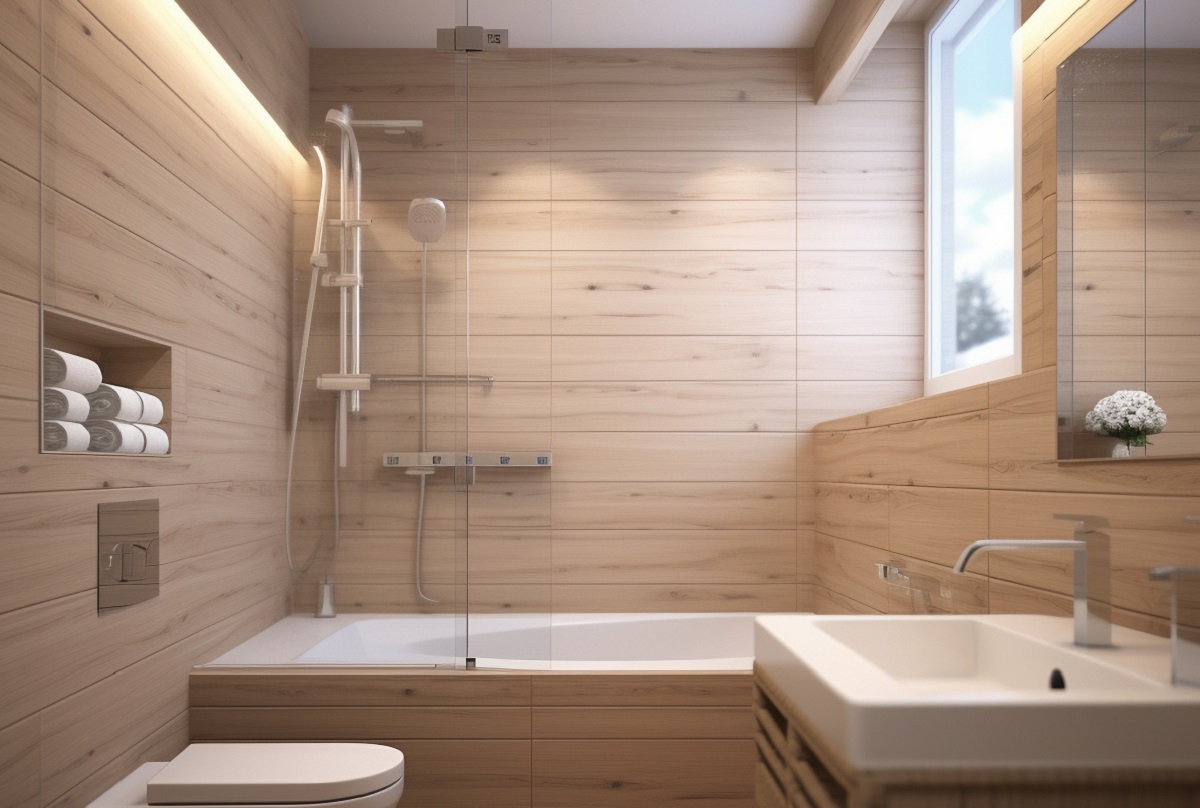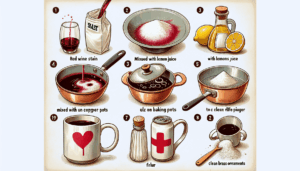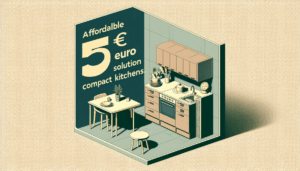Tiles have been used in bathrooms for decades, it is a classic and popular option for covering walls as they require little maintenance and are very durable. However, if you are looking for an alternative to tiles for your bathroom wall, there are plenty of options to choose from.
Each of these materials has unique properties, but all can help you create an elegant and functional bathroom space. When choosing a material for your bathroom walls, it is important to consider factors such as safety, cost, and appearance.
In this article, we will explore some alternative materials to tiles for bathroom walls, and delve into the advantages and disadvantages of each.
Alternatives to tiles for bathroom wall covering
Plaster


Plaster is an excellent alternative to change up the look of traditional tiles, to absorb moisture in a bathroom. If you want a seamless look, this material can be installed over drywall or other materials. To create a finished look, plaster can be painted, and walls can be sealed to prevent water from seeping into the wall behind.
Some drawbacks of using plaster in a bathroom include the fact that it can crack if the wall shifts, and it is difficult to maintain. Regular maintenance is needed to keep plaster surfaces clean and chip-free.
PVC Panels
PVC panels are another great alternative to tiles for your bathroom wall. These panels are incredibly durable, water-resistant, and easy to install. Plus, if you ever change your mind, they can be removed without causing damage to the current structure. PVC panels are also affordable, and come in a wide range of colors and styles to fit any design. You can even find panels with embossed patterns that look like tiles from a distance.
Acrylic Sheet
An acrylic sheet can be a great option for a modern and minimalist look. These sheets are typically used to cover walls in industrial buildings, but can be an interesting and unique option for a home bathroom.
Additionally, an acrylic sheet is easy to install and can be quickly and cleanly cut to fit any size space. It is also a low-maintenance option, as the surfaces can be easily cleaned and disinfected. However, these sheets can scratch easily and must be handled with care to avoid damage, making them a great alternative to tiles as well.
Stone


Natural stone can be a beautiful alternative to tiles for your bathroom walls. It is easy to clean and maintain, and can give your bathroom a spa-like feel. The material can also add a luxurious look that tiles cannot match.
However, stone can be very expensive, and its installation can be a bit complicated. Since stone is heavy, it may also require special frames or supports. Additionally, since stone is a natural product, it can be prone to chipping and staining.
Wood


Wood is an increasingly popular choice for bathroom walls. This natural material adds warmth and texture to the space, and can be a cost-effective option. Plus, you can easily customize the look of the space by changing the wood finish.
However, wood can be easily damaged by water and moisture, so it is important to choose wood with the proper treatment and finish for prolonged use in the bathroom. You will also need to take special care to keep the wood free from mold and mildew, as they can be a problem in humid spaces.
Glass
Glass is a modern and elegant option for the bathroom wall, one of the best alternatives to tiles. It is a non-porous material, making it mold-resistant. Additionally, it is incredibly versatile and can be customized to fit any design. However, glass can be heavy and must be properly installed to prevent breakage. It can also be expensive and prone to scratches and fingerprints.
Metal
Metal is a unique and modern option for the bathroom wall. It adds a touch of elegance and sophistication, and can be customized to fit any design. Plus, metal is incredibly resistant to mold.
However, metal can be expensive and heavy. It can also be prone to fingerprints and scratches.
Exposed Brick
This is a very modern option that gives the bathroom a lot of personality, adds warmth, and provides a loft-style touch. This material is durable and resistant to water exposure. When combined with wood, it gives an industrial and modern appeal.
We have to consider that long-term maintenance of brick walls can be somewhat complicated. Holes cannot be filled between the bricks by incorporating plaster because it can retain moisture. Therefore, repairs can be costly.
Final words…
There are several alternative materials to tiles for covering the bathroom wall. Each of these materials has its own properties and can be a great choice for an elegant, functional, and unique space. When choosing a material, it is important to consider factors such as safety, cost, and appearance to find the one that best suits your bathroom.
Photos: Freepik and Unsplash.










